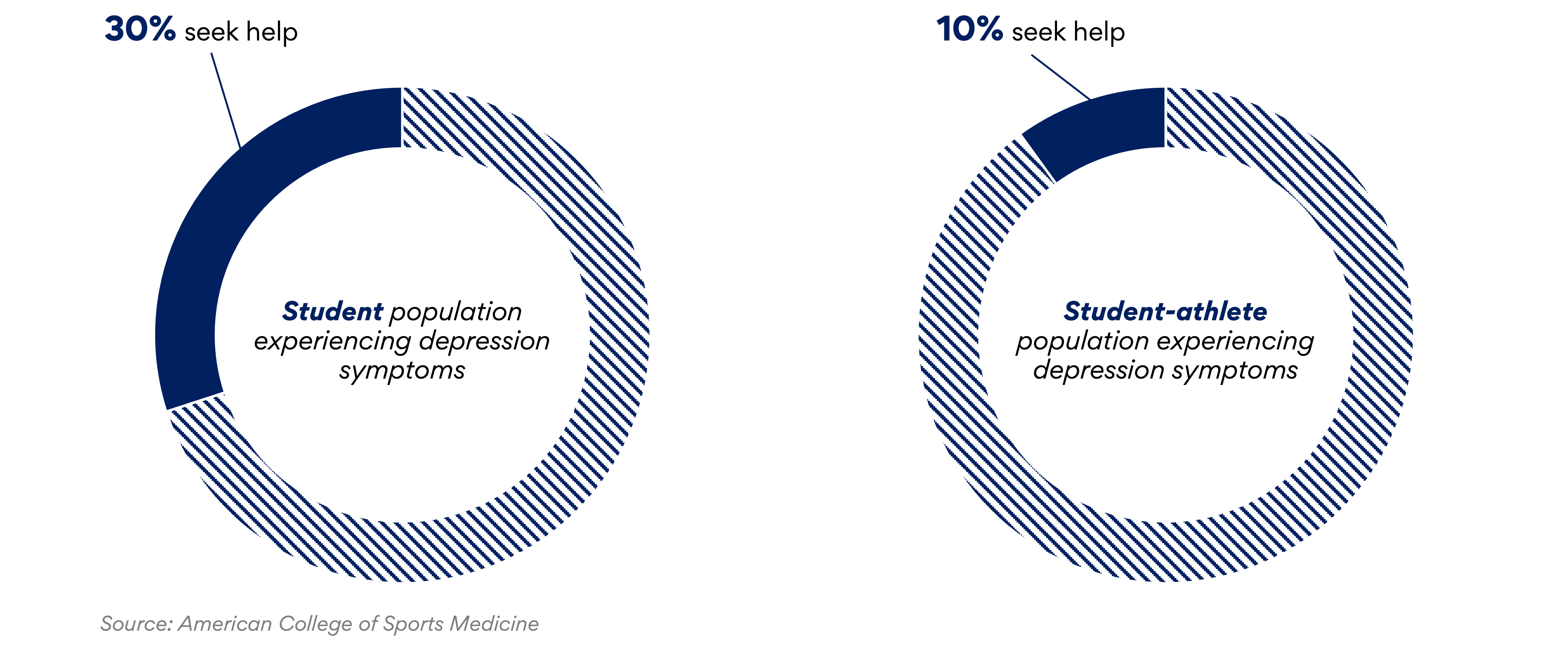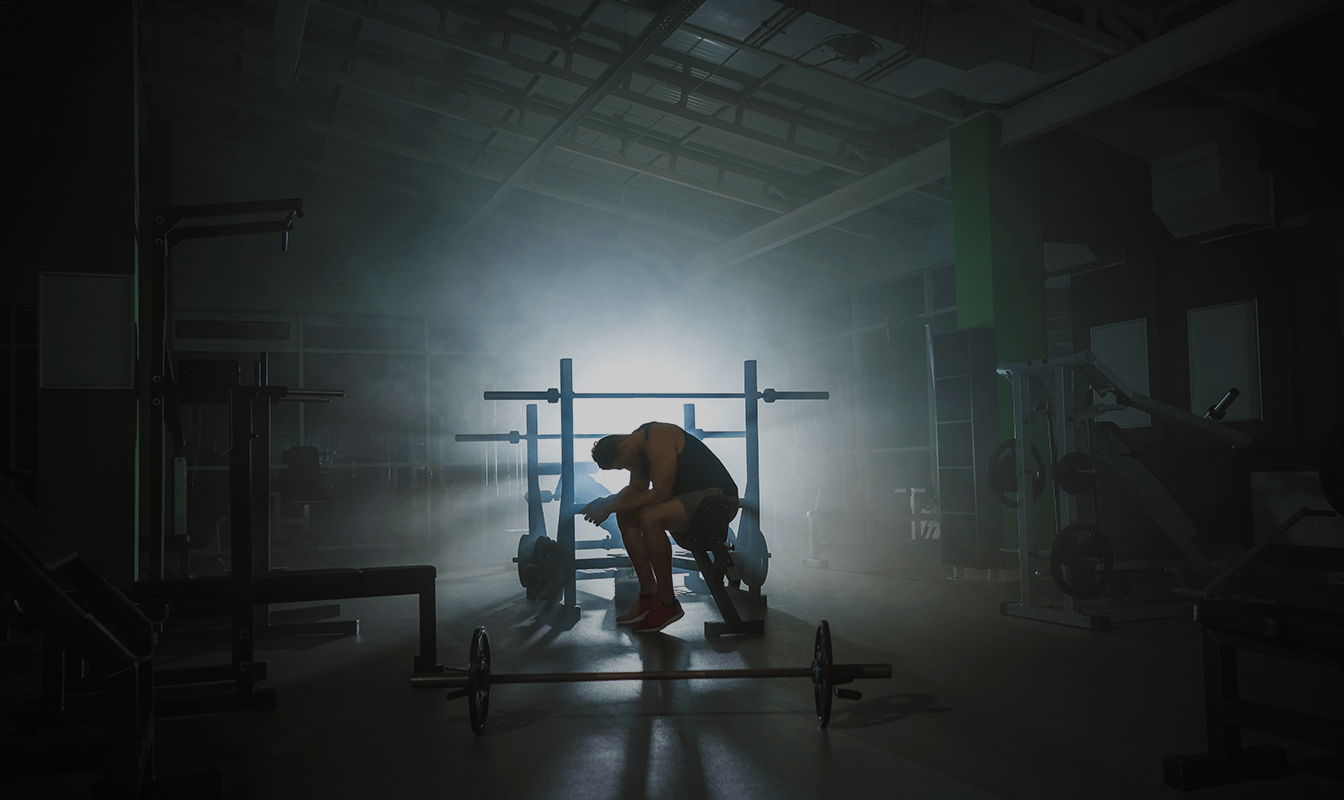“A lot of it is unseen; no one really knows what’s going on beneath the surface with people…I personally think it’s a lot more debilitating than a physical injury” – anonymous student-athlete
The tragic deaths of Stanford women’s soccer player, Katie Meyer, University of Wisconsin track athlete Sarah Shulze and JMU Duke’s softball player Lauren Bernett have led to renewed discussions among college administrators and athletes on how best to address the mental health and wellbeing of student-athletes.

To capture a more holistic understanding of this mental health conversation, Legend Labs spoke with several individuals with intimate knowledge of the subject. They include:
-
- Ashley Harmon, assistant director of clinical behavioral health at the University of Texas at Austin.
- Ashley Kuchar, a Ph.D. candidate studying athlete cognitive performance and founder of Fail Better Training.
- One anonymous athletic trainer with 17-years of experience working in college athletics.
- Three anonymous student-athletes completing their senior years.
From these conversations, the following themes emerged that would be worthwhile for athletic departments to consider:
Athletes Feel Misunderstood
-
- The pressures of the championship season, traveling, and succeeding in school are a lot for athletes to handle. Kuchar said: “There is a perception that athletes are tough and don’t need help and a belief that athletes have everything they need.”
- Athletes appear to have everything they need on paper, but in reality, they are fighting to stay afloat. One athlete said: “Being on campus for hours, having classes, especially during mid-term times because everything is ramping up with school and training is ramping up. It’s a collapse of both body and mind… I’ve been so stressed that I’m going to fail out of school because I put all of my efforts into NCAAs, and it’s just a difficult situation.”
- It’s important for universities to externally and internally promote and track the impact of messaging that generates awareness of the student-athlete lifestyle and hidden battles they have to face.
Mental Health Isn’t Fully Destigmatized
-
- All individuals stressed that there needs to be a continued effort to destigmatize mental health.
- Kuchar emphasized that this is not simply about destigmatizing mental health, but also about strategically reframing it as “mental performance.”
- The athletes we spoke to pointed out that there is a mental health presentation at the beginning of the year, which is a positive step towards destigmatizing the topic and informs athletes about the resources available.
Coaches and Their Staff Need More Mental Health Training
-
- All athletes interviewed mentioned that their coach played a significant factor in their overall mental health – both positively and negatively.
- One athlete said: “The universities had all of the therapists and accommodations and medications, but when I went to talk about it with coaches, I didn’t feel understood at all. So there came the point where I stopped talking about it. When it did come up at practice, I didn’t know what to do.”
- Another athlete said: “There should be more coach intervention at some points… I think a little more education on the effect of certain mental health issues on student-athletes at practice is definitely important.”
- Harmon discussed the importance of getting coaches on board and providing mandatory mental health training so they can be more aware of the battles their athletes are facing, watch for signs, and handle sensitive situations.
Athletic Trainers Are the First Line of Defense
-
- Many athletes are going to athletic trainers for physical injuries multiple times a week, but a number of these trainers aren’t equipped to handle mental suffering. The athletic trainer we spoke to said: “I think mental health should be part of our training. It’s just like an injury; it’s just one that can’t be seen.”
- Investing in training for staff members that work closely with athletes could be an essential bridge to help athletes take steps to get the help they need.
Athletes Want Physical, Safe Spaces to Talk to Other Individuals
-
- Every person interviewed mentioned the importance of being able to talk to another human and feel heard.
- Kuchar said: “Every university should have at least one sports performance person on staff.”
- One athlete said: “I recently started seeing a therapist, I didn’t before because I didn’t feel like I had time, but it’s nice having someone who will just listen to you.”
- Harmon highlighted that the University of Texas has approached student-athlete mental health wisely by providing a space within the stadium for athletes to speak to therapists. Having a mental health facility housed in an athletics space allows the athletes to remain anonymous and feel safe.
Taking the voices of experts, staff, and athletes into account is the key to understanding how to improve student-athlete mental health programs. Investing in messaging, branding, and funding for mental health services will have an impact on athletes in and beyond their college years.

